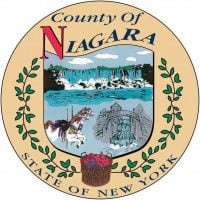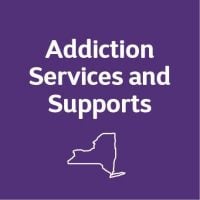Fellowship House
Drug Rehab Center in Niagara Falls, New York
Fellowship House is a SAMHSA-accredited Drug Rehabilitation Facility in Niagara Falls, NY that specializes in the treatment of Alcoholism, Opioid Addiction, Dual Diagnosis, and other Drug Addictions through Detoxification Services, Inpatient Programs, Dual-Diagnosis Treatment Programs, Aftercare Support, Outpatient Levels of Care and Support Groups for both Patients and Family Members.
About This New York Facility
Fellowship House, located in Birmingham, Alabama, is a comprehensive alcohol and drug rehab center that offers addiction treatment to both men and women. With residential treatment, outpatient treatment, and sober living accommodations available, Fellowship House provides a range of care options to meet individual needs. The facility also offers family services to support loved ones during the recovery process.
• Comprehensive addiction treatment begins with an assessment to determine the appropriate level of care for each client.
• Residential treatment includes individual therapy, group therapy, medication management, case management, vocational counseling, and family support services in a 24/7 care setting.
• Outpatient treatment follows a holistic model, providing individual therapy, group therapy, case management, peer support, and classes on basic living skills, as well as medication-assisted treatment.
Fellowship House is accredited by the Substance Abuse and Mental Health Services Administration (SAMHSA) and holds a state license, ensuring the highest standards of quality and affordability in addiction treatment services. The facility offers a comprehensive approach to addressing substance abuse and addiction through various programs and levels of care.
The center treats individuals suffering from alcoholism, opioid addiction, dual diagnosis, and drug addiction. Treatment methods include drug rehab, detoxification, inpatient care, dual-diagnosis treatment, aftercare support, and outpatient programs, providing a well-rounded approach to recovery.
Genders
Ages
Modality
Additional
Accreditations
State License
SAMHSA
Conditions and Issues Treated
Opioid addiction treatment should be done in a medically supervised drug rehab. Opioid addiction treatment will include detoxification and drug rehab counseling to help both the user and their loved ones learn how to live a successful sober lifestyle. Methadone, buprenorphine, and naltrexone are three medications that can help treat opioid addiction. Individual drug rehab counseling sessions can be helpful to discuss any questions or concerns with the drug treatment program.
When addiction and psychiatric issues co-occur, the addict’s recovery is more successful when both conditions are treated. A dual diagnosis refers to a condition in which the patient is diagnosed with two health issues: addiction and bipolar disorder.
Usually, dual diagnosis sufferers are prescribed a combination of treatments for each condition. The most common therapies are psychotherapy, behavioral therapy, spiritual counseling, 12-step programs, and medication management.
Psychiatric conditions are an obstacle to recovery because they can create roadblocks to a healthy lifestyle. Drugs and alcohol may be used as a means of self-medication, which can have dangerous consequences. Over time, addicts build up a tolerance and suffer withdrawal symptoms when drug use is stopped.
With the proper treatment, dual diagnosis sufferers can overcome their conditions and achieve lasting sobriety.
Levels of Care Offered at Fellowship House
This center offers a variety of custom treatment tailored to individual recovery. Currently available are Aftercare Support, Detox, Drug Rehab, Dual-Diagnosis, Inpatient, Outpatient, with additional therapies available as listed below.
Detoxification is the first step in drug addiction treatment. A controlled environment where symptoms can be managed with medication and close observation is provided by drug detoxification. Detoxification is an essential step in the recovery process, but it is also one of the most dangerous. Due to the potential danger, it’s critical to understand what detoxification is and how to complete it safely.
A detox program helps the person physically withdraw from drugs and helps them track their progress. So, suppose the person isn’t ready for sobriety (or relapses). In that case, the treatment professionals can catch it early and help re-orient them towards recovery.
Inpatient treatment is an option that provides addicts with a supportive environment in which they can stop using. This type of intensive care and supervision is appropriate for those who were unable to quit on their own or need more structure than they could get from outpatient treatment, such as the addict most in need of this level of care.
The goal of inpatient rehab is for the addict to stay focused on sobriety and remain free of mood altering substances. Inpatient treatment programs usually offer the following: detox, therapy groups, one-on-one counseling, medication management and aftercare planning.
Individuals struggling with drug addictions can get help from several treatment options, including inpatient and outpatient programs. Outpatient drug treatment programs can also provide patients with different levels of care, usually depending on the patient’s degree of addiction.
At an outpatient program in Niagara Falls, a patient will attend a recovery program during the day and return home in the evening. Suppose a patient is struggling with drug addiction. In that case, an outpatient program can serve as an effective transition point during the recovery process.
Aftercare is a part of drug rehabilitation. It is also known as “post-treatment support.” Aftercare programs are available for addicts after they complete drug rehab. It is often the final step in the recovery process. The goal of aftercare is to ensure that addicts maintain their achievements in rehab and do not relapse. Professionals generally provide aftercare (including addiction therapists, physicians, social workers, psychologists) and involve individual and group therapy sessions.
Therapies & Programs
Individual therapy is a critical component of addiction recovery. It allows the patients to go deep into their core issues and discover how to handle those problems better. Therapy can be conducted in individual sessions as well as group settings. In individual therapy for addiction, the patient meets with their therapist one-on-one to focus on the underlying issues. This allows patients to open up and discuss personal topics they may not feel comfortable discussing in a group setting. This type of therapy can help develop solutions specific to each patient, which helps speed up the recovery process.
Couples therapy is beneficial for couples in which at least one partner has a substance use disorder. This type of therapy can help partners improve communication skills, which is an important factor in a healthy relationship. It can also help partners better understand one another so they have a greater understanding of how the other partner may be feeling.
Benefits of couples therapy include:
- Improvement in communication skills
- Increased understanding of the dynamics within a relationship
- Increased sense of support and trust in the relationship
- Better teamwork between partners/increased willingness to listen and work together
- Enhanced tolerance of each other’s shortcomings
- Improved ability to have open, honest communication with each other
Family therapy is a crucial part of drug treatment and getting sober. It is one of the most effective ways to help addicts stay on the path to long-term sobriety. When a drug addict decides that they want to try and get sober, it takes the support of every person they love to succeed. It can be incredibly difficult for loved ones to watch an addict go through the pain and suffering of withdrawal, but by being there with them and supporting them, they can help to make sure that the addiction never returns.
One of the most important parts of family therapy is the relapse prevention plan. During treatment, therapists and doctors will often sit down with the addict and their family to develop a plan in case the addict ever feels like they want to use again. This plan should involve steps the addict and family can take together to prevent them from relapsing in the future. An addict’s family can play a vital part in helping them to avoid relapse because they can spot the warning signs and help them get back on track before it becomes too much of a problem.
Group therapy helps prevent addicts from feeling isolated or unique in their situation by offering a sense of comfort and fellowship. It also creates a forum for addicts to build their support systems and learn from each other. The group therapy sessions at Fellowship House occur in a group setting rather than one-on-one to create a safer, controlled environment where addicts feel comfortable.
Cognitive Behavioral Therapy (CBT) is a common therapeutic approach to help drug addicts. It teaches addicts new ways of thinking and behaving so that they can avoid relapse. There are several forms of CBT used in drug rehabilitation centers.
Cognitive Restructuring helps addicts identify faulty, negative thinking so that they can work together with the therapist to find healthier ways of thinking, resulting in better decision-making.
Cognitive Behavioral Therapy for Addiction uses the principles of CBT to help treat addiction. It focuses on specific aspects of each person’s thinking, feeling, physiology, and behavior. It aims to identify specific problems in these areas and create a personalized treatment strategy.
The best drug treatment centers offer various services to help addicts learn how to live without drugs. Since addiction is a chronic physical and mental illness, addicts need to learn as many life skills as possible to help them stay clean and sober.
Many drug treatment centers like Fellowship House offer life skills activities as part of their addiction recovery programs. Examples include cooking classes, employment training, resume writing seminars, parenting classes, and computer training. When addicts have various life skills to lean on, they’re better equipped to put their addiction behind them for good.
The primary goal of life skills activities at drug treatment centers like Fellowship House is to help addicts recover from addiction and learn how to live a useful, productive life. Life skills activities help addicts find employment, take care of their families, and give back to the community. After learning about these various life skills, addicts are better prepared to return to society and lead happy healthy lives.
Payment Options Accepted
For specific insurance or payment methods please contact us.
Additional Details
Specifics, location, and helpful extra information.
Niagara Falls, New York 14303 Phone Number(131) 531-4804 Meta DetailsUpdated April 15, 2024
Staff Verified
Patient Reviews
There are no reviews yet. Be the first one to write one.
Niagara Falls, New York Addiction Information
More than 2 million New Yorkers are currently suffering from some type of substance abuse and many of those are minors. Alcohol abuse, in particular, is prevalent among those underage. As a result of the high prices and regulation of prescription drugs, many New Yorkers turn to heroin instead. This has led to a serious heroin epidemic in the state.
Niagara Falls, New York has one of the highest rates of drug abuse in the country. More than 5% of people aged 12 or older used illicit drugs at least once in 2015. This is up 21% since 2002. Drug addiction can lead to various health and social problems, including crime and violence. In Niagara Falls, popular options include inpatient and outpatient rehab programs, 12-step programs, and detox clinics.
Treatment in Nearby Cities
- Hempstead, NY (324.4 mi.)
- Ellenville, NY (255.9 mi.)
- Tarrytown, NY (300.5 mi.)
- Ballston Spa, NY (262.9 mi.)
- Yorktown Heights, NY (297.9 mi.)
Centers near Fellowship House
The facility name, logo and brand are the property and registered trademarks of Fellowship House, and are being used for identification and informational purposes only. Use of these names, logos and brands shall not imply endorsement. RehabNow.org is not affiliated with or sponsored by Fellowship House.









